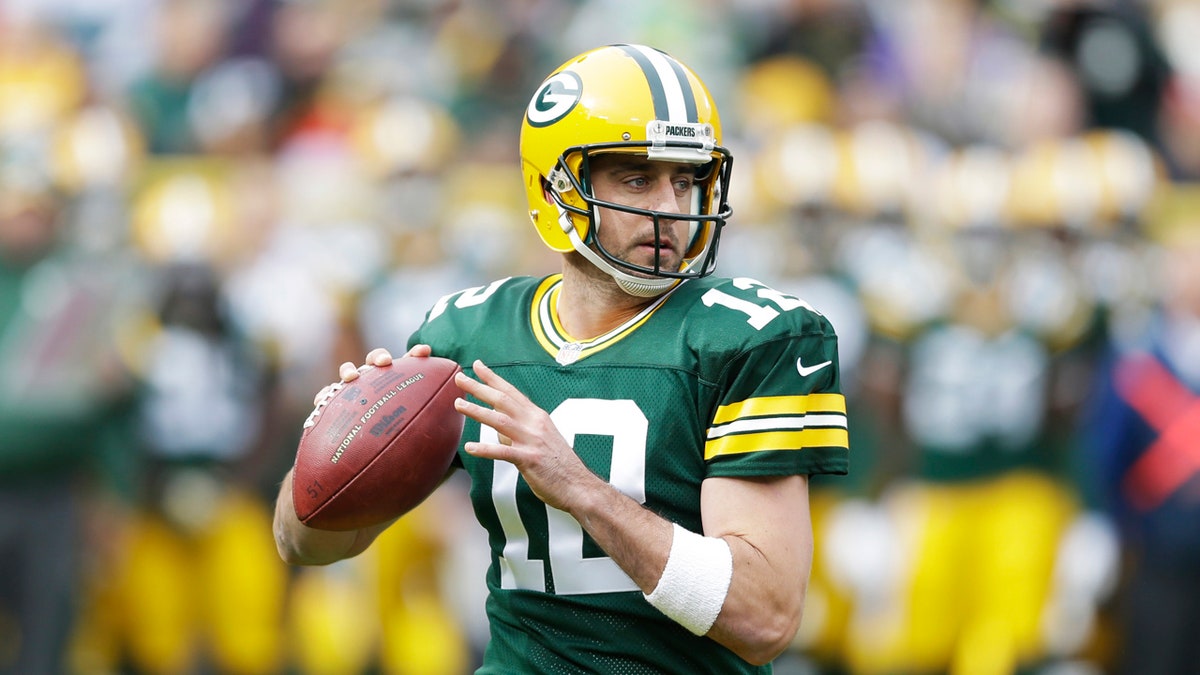
Green Bay Packers quarterback Aaron Rodgers says he's ditched dairy to "get healthier." But fans in America's Dairyland aren't too happy about his new diet.
Green Pay Packers quarterback Aaron Rodgers has sparked the ire of Cheeseheads across the country by announcing he’s cut dairy out of his diet to slim down and “get healthier.”
On Tuesday, Rodgers told ESPN that since his knee-surgery in January, he’s been following a stricter food regimen in an effort to prolong his career.
"I just wanted to get healthier," said Rodgers. "I've done a lot of research and talked with Adam Korzun, our [team] nutritionist, and some other friends around the league about how I can extend my career and how I can be and feel healthier."
That plan includes plenty of fruits and vegetables and following "more of a vegan diet with some red meat at times and some chicken."
Unlike vegetarians, vegans don’t just ditch animal protein—they ditch animal products altogether which means no milk or cheese. Eschewing cheese in America’s Dairyland—or at least publicly announcing it—may not be the smartest move for a Packers player.
The Wisconsin Milk Marketing Board, an industry organization that promotes consumption of Wisconsin dairy to boost industry sales, wasn’t pleased with Rodgers comments that certain foods, like diary, can “increase inflammation” in the body.
"As some of the world's greatest Packer fans, the dairy farm families of Wisconsin are, of course, disappointed by this news," the Milk Marketing Board said in a statement. "While we trust and respect Aaron Rodgers and his nutrition team, we stick by the USDA recommendation of three servings of dairy per day for anyone age 9 and older. Cheese is a natural source of high-quality protein and among the richest dietary sources of calcium."
Wisconsin trails only California in domestic milk production and is second to none in its cheese output—producing over 3 billion pounds of cheese in 2015 alone. The state’s dairy industry pumps over $43 billion annually into Wisconsin’s economy.
The board added, "Regarding inflammation, Aaron would be better off to continue to eat low-fat dairy products. The National Institutes (of) Health says there is no proof dairy causes inflammation in muscles and joints."
Rodgers hasn’t just upset Wisconsin dairy producers. Cheeseheads across social media have lashed out at the football player for ditching the state’s most treasured food.
But at least fan says as long as Rodgers keeps his performance up, what he eats off the field shouldn't matter.
Rodgers isn’t the first major athlete to spark controversy for an extremely healthy diet. In January, Tom Brady’s personal chef divulged the star’s diet consisted of about 80 percent organic vegetables and 20 percent lean meats like chicken or fish, vegan delicacies lentil buckwheat footballs and vegetable maki sushi-- with few fruits and nary a complex carb or processed food in sight.
